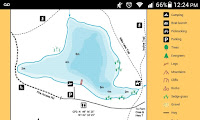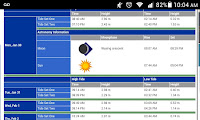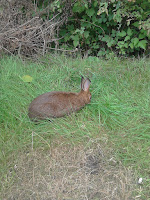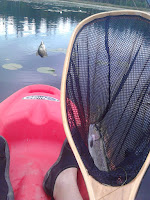A Few Thoughts On Finding And Fishing New Locations:
Hunting down new fishing locations is to me one of the most rewarding aspects of fishing. Not only is the hunt exhilarating but the amount of new knowledge you can gain while researching and exploring is just staggering. For many of us the art of discovery comes naturally as we mature and build a stronger knowledge base. However, as a beginner this relatively simple task can occasionally be quite frustrating. When i first started fishing i had very little experience or direction when it came to finding new locations. I spent many hours blindly driving to locations that i was either unprepared to fish properly, or that were simply unfishable. And while i will occasionally still get up early and drive at random looking for spots that jump out at me, having a sense of direction has greatly improved my experience as an angler. In this post i'm going to try and cover some of the steps i use to gather information and the method i use to build a more complete image of a fishing location in my mind before i even step foot out the door. first things first, Finding new fishing spots in this day and age isn't usually too difficult, we are pretty spoiled by the internet (and by an abundance of great fishing locations). There is an absolute treasure trove of useful information online and it often only takes a simple Google search to find what you're looking for. You may find though that from time to time you require deeper, more specific information.
I usually start my search with one or two species in mind when i open Google maps. Modern mapping apps are a fantastic way to survey the landscape with very little effort. I personally like to use my phone for most of my research, that way i can reference previously useful information while out in the field. Once i find a lake or stream i'm interested in i'll do an online search as to whether or not a target species is present. Some species such as Rainbow or Cutthroat are easier to track down then say Bluegill or Catfish. For instance, and this is hardly a sceret, if i want to find a good local lake to fish for stocked Rainbow trout all i really need to do is visit
gofishbc.com to view their fish stocking reports and that will point me in the right direction. A quick search will also show you popular websites like
fishingwithrod.com and
sharphooks.com which can provide you with plenty of useful information such as fishing reports and bathymetric maps. More than enough data to help you catch everything from hatchery and wild trout to Kokanee and Crappie.
 |
| Google maps image. |
 |
| Sharphooks.com bathymetric map. |
 |
| Fish stocking reports at gofishbc.com. |
But what about harder to locate species? If you do a search of where to find say... Yellow Perch in the lower mainland you won't come up with much, there are many mentions of these fish in the Okanagan and on Vancouver island but that is of little use when trying to fish the lower mainland. In a situation like this i'll try multiple different wordings of the same search and go through every link that comes up. From message boards to blogs to government reports, combing over everything for the smallest tidbit.
If i was to find a report about Yellow Perch being found in a specific lake i'd look up what i could about said lake, such as typical conditions and resident species. i'd also go over recent satellite images and bathymetric maps to look for ideal fishing locations. Then i'd grab some gear and head out. Lakes (especially smaller ones) tend to be fairly consistent and a ton of information isn't really needed to target them successfully and because no matter how useful all the information online is, i'd rather be out fishing than sitting at home. besides, hands on experience is by far the best source of information.
Now if the mention i find is from a stream, i'd go to work looking over all the water connected to said stream that looks favorable to Yellow Perch. This can seem like a daunting task if you have a lot of water to cover, but with a little patience and perseverance likely locations will start to show themselves as you scan over maps with knowledge of your target species in mind. From favored depths and flow rates, to types of cover and structure and availability of preferred food.
One of the most useful resources i've found for live hydrometric data, specifically current (and average historical) depth and discharge rates, is at
wateroffice.ec.gc.ca. Here you can find information on numerous local streams. On a bit of a side note, the water office website is also a great way to monitor water levels during periods of heavy rain or drought, allowing you to note which creeks or rivers may be blown out or too low to fish before even leaving the house to go fishing. Tidal information can also be quite important while exploring streams, especially lower portions with brackish waters or sloughs. With slack tides tending to be the most productive, at least in my own experience. Like all things online, there are many different sites that can help you track tides and while i will usually check more than one site i tend to refer back to
myforecast.com more often than not.
Another useful avenue is to look for reports of other species commonly found with the target species. those relationships tend to hold true more often than not. For example, A lot of the time i'll scout shallow water for Pumpkinseed sunfish while i'm targeting Largemouth bass. And 8 times out of 10 times i'll find Largemouth. Any information you can use to help narrow your search is useful. Really rack your brain for creative correlations while researching online, sometimes it's taken me two or three reads of an article before something useful has popped out. And over time i build up a list of several promising target locations, then i'll head out see if i can catch some fish. This approach does take a bit of time and effort and usually some trial and error, but is often successful and always educational.
 |
| Hydrometric data, wateroffice.ec.gc.ca. |
 |
| Tidal info at myforecast.com. |
Now say that you found no solid mention of your target species in your searches. This is a real possibility when looking for non native or less common species. It happens, and it can be a bit of a bummer. It could be that the species is there in extremely small numbers and there is no report of it yet. Or, the most likely scenario is that it isn't there at all. There isn't a lot you can do if there is no evidence of the species being present. You could make a list of possible locations based on your knowledge of how this species behaves in other areas and hope for the best. If i were to take this approach i'd target water with other fish commonly found with the target species first. Unfortunately, you probably won't be successful but at least you'll be out fishing and exploring new water.
On a personal note, and maybe of interest to some, i have not seen Yellow Perch in the lower mainland. I do intend to set some time aside this season to target them though as I have come across a few mentions of them possibly being here. And although very little of that information seems dependable, it's still worth investigating, even if all i manage is to do is satisfy my curiosity.
When it comes to choosing new fishing spots without having a target species in mind the search is much simpler. Personally, i love fishing nice clear creeks with a few runs and pockets of deep water spread out over a fair distance so that there is a bit of a hike to be had as well, and i also like shallow, smallish lakes and sloughs with lots of vegetation, specifically lily pads. I also prefer multi spices locations more than spots with just one or two species. knowing this about myself makes it pretty easy to either look over satellite maps, or do a simple Google search to find spots i might find interesting.
Granted there are many more resources available, both on and offline. And truthfully there are probably as many ways to find new fishing spots as there are fishing spots in the lower mainland. And as far as i can tell there are a heck of a lot of them. It makes me pretty happy to know that i'll be able to experience the thrill of hunting down a new location for years and years to come. And if a few of those make it into my regular rotation of favorite spots, even better.















